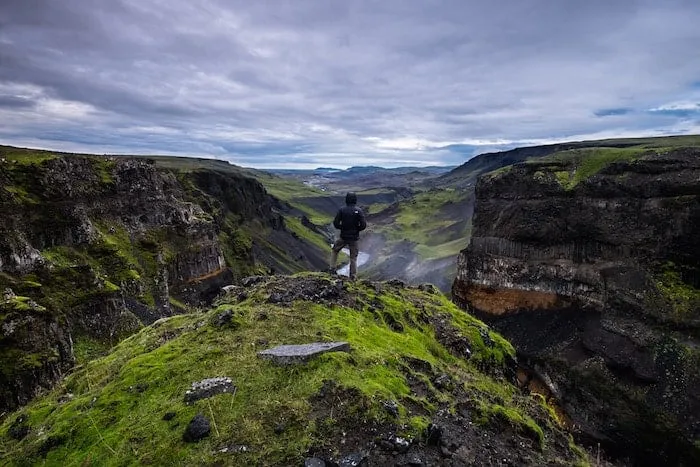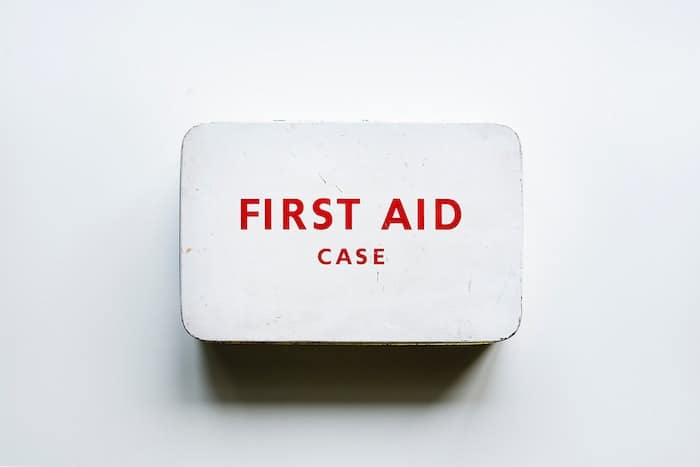We know that a lot of our friends, fans & customers are avid hikers. We want everyone to stay as safe as possible out on the trails so here are five hiking safety tips from our friends at The Adventure Lab
Whether you’re out for a day hike or a month-long backpacking trip, safety should be your number one priority outside.
Sure, we all want to have fun and enjoy the beauty of nature, but, more importantly, at the end of our trip, we want to return home happy, healthy, and ready for the next adventure.
The 5 tips below cover the basics for staying safe outside. Follow these and you'll drastically increase your chances of returning home from your next hiking trip in one piece.
1. TELL SOMEONE YOU TRUST

If you do only one thing on this list, make it this one. Above all else, telling a trusted person about your hiking plans could literally save your life. A short note left with someone you trust about who’s in your hiking group, where you’re going, and when you plan to be back could make all the difference if you do need to be rescued.
While no one wants or expects an emergency to happen, this information could be critically important for search and rescue personnel, especially in adverse conditions. It’s a little step that goes a long way.
2. BRING THE RIGHT GEAR

When you're out for a hike, be it a short ramble in the woods or an extended trek, you need to bring the right gear for the conditions you might face. It might seem excessive to bring a pack full of gear when you're out on a half-day hike, but if conditions change rapidly, you'll be happy you brought that rain jacket.
Every hike you do will demand different gear, but as a general rule of thumb, you should plan to pack:
- Food (even if it’s just an energy bar)
- Water
- Spare clothing - this could be anything from a hat to a puffer jacket
- Navigation tools (compass, map, GPS, etc.)
- First aid kit
3. LEARN TO NAVIGATE USING A MAP AND COMPASS

These days, many people use their phones and/or GPS devices to navigate them through city traffic and even in the mountains. While these devices can be extremely helpful, we cannot rely on them as our sole navigation tools.
GPS devices and phones can break, their batteries can die, and they can even fail to pick up a signal. If you’re relying solely on electronics to get you out of the woods, you may find yourself walking in circles when they malfunction.
Instead, get a quality compass and hiking maps of the area you plan to travel in. If you're new to hiking or to using a map and compass, invest the time and energy into taking classes and learning from experts - if your GPS dies in the middle of a hike, you'll be happy you did.
4. TAKE A WILDERNESS FIRST AID COURSE

Although we hope that nothing bad will ever happen to us while we’re out on a hike, accidents do happen. The best way to be prepared to deal with these events is to take a wilderness first aid class, which covers everything from treating hypothermia to dealing with blisters.
During these classes, you’ll also learn about what you might pack into your first aid kit, which you should bring with you on every trip. Even if you never have to use these skills to save yourself or your friends, you may come across another hiker in need of your help.
5. LEARN ABOUT THE AREA AND CHECK CONDITIONS

Even if you’re just going out on a hike in your local hills, getting updated information about local conditions could give you some important insight about your plans for the day. Weather reports, wildfire conditions, and avalanche advisories are just some of the few things you should check up on before heading out into the backcountry.
Particularly if you’re adventuring into new terrain, it’s worth reading up on the area, its flora and fauna, and its hazards, just to make sure that you know exactly what you’re getting yourself into. It never hurts to be prepared.
